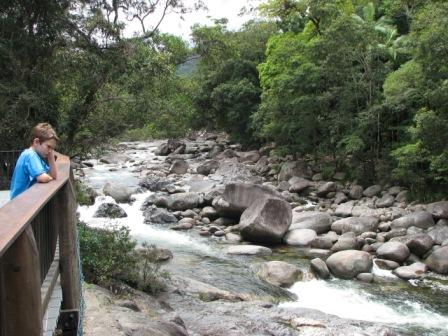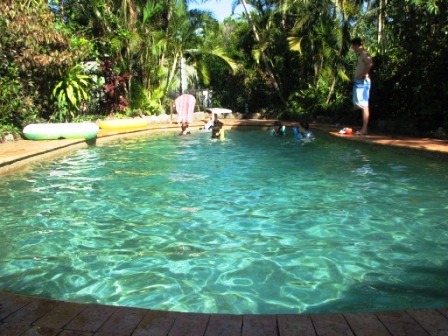Turtle Facts.
during my recent visit to Reef HQ Aquarium.
By Boy, age 11
By Boy, age 11
Turtles can grow to be very big and live for approximately 150 years.
There are seven different types of Turtle species. The Green Turtle is the largest turtle species and baby green Turtles are white. The Great Barrier Reef houses six species of Turtles and all of them are threatened.
Turtles do not lay eggs until they are between 30 and 50 years old and you do not know if a Turtle is male or female until it lays eggs.
Turtles lay their eggs on land and the hatched Turtles have to find their own way
 to the ocean (Pic 2 and 3 are of a suspected Turtle nest spot on the Strand at Townsville). Birds and other animals eat most of the hatched Turtles and only one out of a thousand survive.
to the ocean (Pic 2 and 3 are of a suspected Turtle nest spot on the Strand at Townsville). Birds and other animals eat most of the hatched Turtles and only one out of a thousand survive.Turtles breathe air and have to surface to take breaths. They can hold their breath for up to approximately 90 minutes if they are sleeping or resting.
Turtles are protected. There are many Turtles on the Great Barrier Reef but there used to be many more. Their numbers are getting smaller every year. Destroying the reef by throwing rubbish into the water or not looking after the environment is killing our Turtle population.

Because our environment is changing, we do not know what the future effect on Turtles is going to be. Their long life span has made it hard to do long studies on Turtles.
Note from Boy’s mother. The Reef HQ Aquarium web site has a range of teaching units that home schoolers can down load. Although the units are designed specifically for Reef HQ programs run at the Aquarium, the information, activity suggestions, curriculum links and outcomes are an invaluable help for those doing a unit on marine life study.
Related blog about our trip to the Aquarium: 2007 Year of the Home School Adventure.






10 comments:
My very special Boy.
This article is amazing. Mentioned it in my comment on your excellent response to my questions about the starfish. Love you. Grandma - Grandad too. XXXX
TY G'ma. Boy
Well done on this really interesting article. I found the part about the turtle holding its breath for up to 90 minutes fascinating - imagine what we would be able to see if we could hold our breath for that long!
I can't wait to read another one of your great articles on animals.
Thanks.
Thank you for your comment JJ. I will look forward to hearing from you again. Boy
Hi Boy
I think your article on turtles was really cool. The facts you included were amazing - cool effort!
Birdwing
Boy's Mum types his spoken response to the wonderful Birdwing: Thank you for your comment. I think turtles are cool too.
Dear Boy, Your various adventures sound great. Can you help me with an "Aquarium" concern, please? Recently I was helping my daughter fill in a Resume form on which she had to tick any areas of skill. I was surprised to see that she had ticked "Aquariums", but did not ask her about it at the time. What special skills would someone need in order to gain employment in an Aquarium, do you think? Also, how do you think that familiarity with Aquariums might be of benefit to someone in any other kind of work?
I am puzzled, but perhaps you will have some ideas after your special visit.
Dear Anonymous
to work in an aquarium you would need the skill of swimming, be brave, an interest in marine life, you have to talk to lots of people about the marine animals and predators, and cleaning skills because it's full of glass (Boy's Mum is laughing here - guess where Boy won't get a job!)
Working at an Aquarium would be educational: Like if you do marine biology at uni.
The Aquarium in Townsville had mostly volunteers at it. They all liked it and they knew a lot about it.
Thank you for your questions.
Boy.
(Boy's mother: it's 2.30am and neither Boy or I can sleep)
I am sorry to have taken so long to respond to your reply about working in aquariams. I am not exactly comfortable with computers and some things are very difficult for me to get right. After several days, here I am again. Thank you for your information, it was most informative. I have only seen small household aquariums and have not had your opportunity to visit a huge one such as you describe. It must have been "mind boggling"
Very interesting stuff!! Thanks and Hi from Colorado, a state in the U.S.
Post a Comment